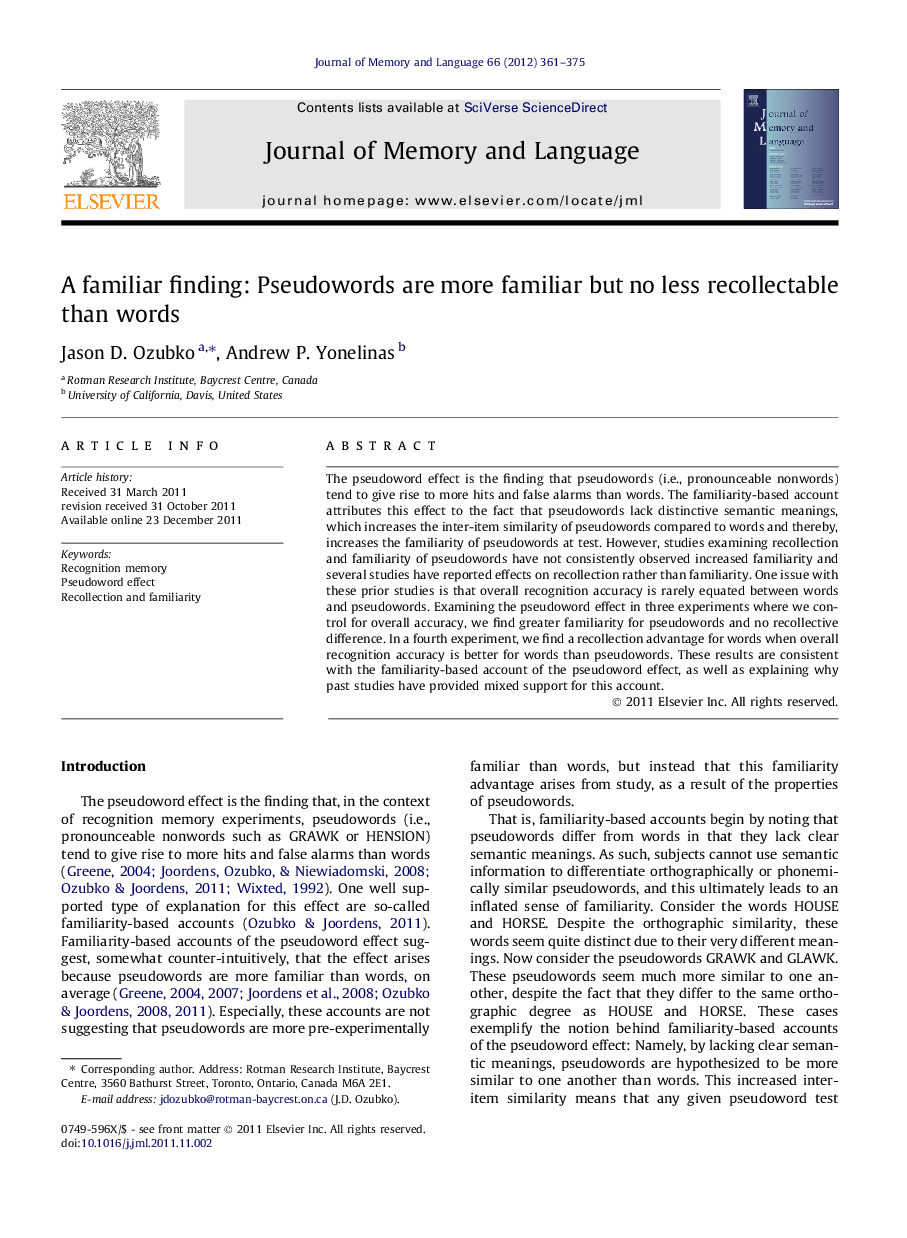| Article ID | Journal | Published Year | Pages | File Type |
|---|---|---|---|---|
| 931993 | Journal of Memory and Language | 2012 | 15 Pages |
The pseudoword effect is the finding that pseudowords (i.e., pronounceable nonwords) tend to give rise to more hits and false alarms than words. The familiarity-based account attributes this effect to the fact that pseudowords lack distinctive semantic meanings, which increases the inter-item similarity of pseudowords compared to words and thereby, increases the familiarity of pseudowords at test. However, studies examining recollection and familiarity of pseudowords have not consistently observed increased familiarity and several studies have reported effects on recollection rather than familiarity. One issue with these prior studies is that overall recognition accuracy is rarely equated between words and pseudowords. Examining the pseudoword effect in three experiments where we control for overall accuracy, we find greater familiarity for pseudowords and no recollective difference. In a fourth experiment, we find a recollection advantage for words when overall recognition accuracy is better for words than pseudowords. These results are consistent with the familiarity-based account of the pseudoword effect, as well as explaining why past studies have provided mixed support for this account.
► Familiarity-based accounts suggest that pseudowords are more familiar than words. ► Past studies have failed to find a familiarity bias for pseudowords yet have found a recollective deficit. ► However past studies have not controlled for overall recognition accuracy of words and pseudowords. ► When overall recognition accuracy is equated, we see a familiarity bias for pseudowords. ► When recognition is better for words, we see a recollective deficit for pseudowords, as in past studies.
